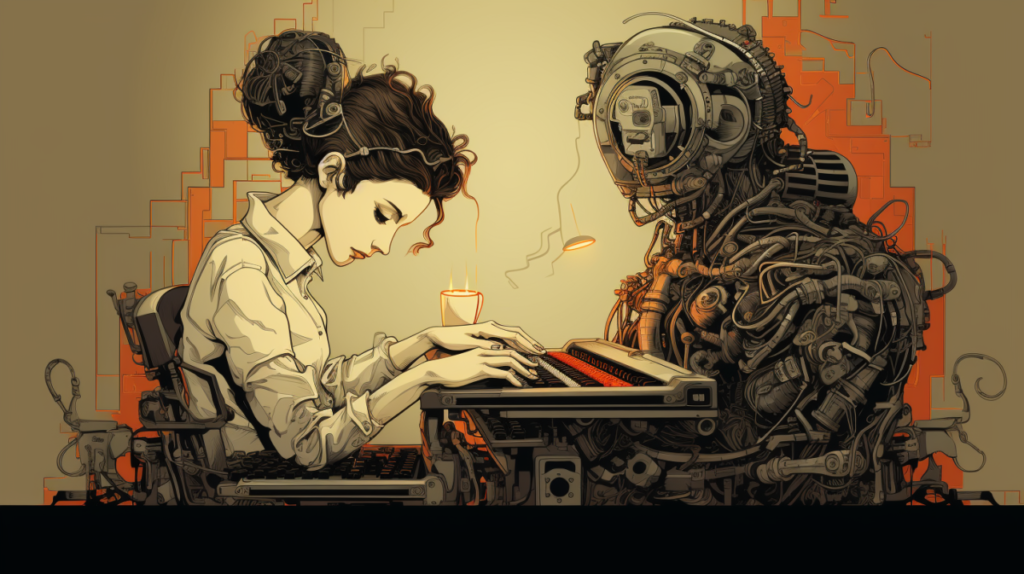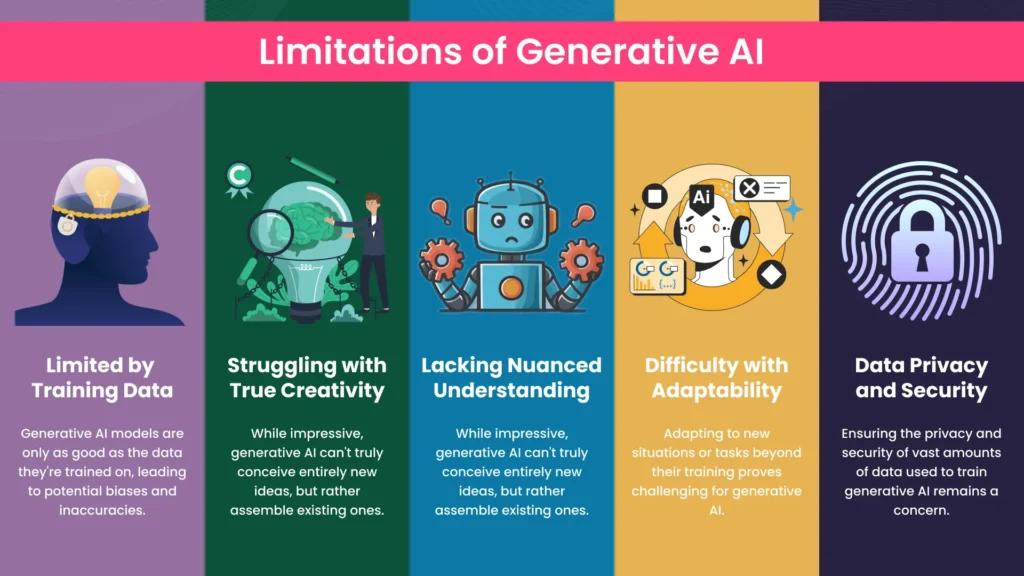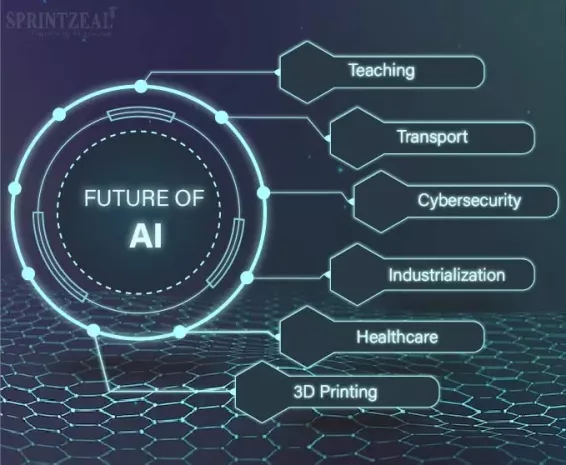
Artificial intelligence (AI) is no longer a futuristic dream—it’s a reality that is rapidly changing the world around us. From automating repetitive tasks to performing highly complex analyses, AI has showcased its ability to surpass human capabilities in specific areas. As a result, debates about whether AI will replace humans in the workforce, and perhaps society at large, have intensified.
While AI continues to evolve, it’s essential to consider its potential and limitations. Can AI truly replace humans, or is it destined to remain a tool for augmenting human abilities? In this blog, we’ll explore the current and future roles of AI, the tasks it can take over, and why humans may still hold the upper hand in many domains.
AI’s Rise: From Science Fiction to Reality
The concept of machines performing human-like tasks was once confined to science fiction. Today, AI is a reality that powers many aspects of our lives. AI systems now drive cars, compose music, diagnose diseases, and even perform legal research. AI thrives in tasks requiring:
- Data Processing: AI processes massive datasets at speeds that humans cannot match.
- Automation: Machines excel in repetitive and precision-based tasks, such as assembly lines or order fulfillment.
- Learning from Data: Through machine learning, AI adapts and improves its performance over time.
For instance, AI chatbots provide instant customer service, while algorithms recommend personalized content on platforms like Netflix and Spotify. Despite these advancements, the question remains: does AI have the potential to fully replace human roles?

Where AI Excels Over Humans
AI systems offer significant advantages in several domains. These strengths often revolve around speed, accuracy, and scalability. Let’s dive into the areas where AI clearly outperforms humans:
1. Speed and Efficiency
AI operates at speeds that far exceed human capabilities. For instance:
- Financial trading algorithms execute trades in milliseconds, seizing opportunities that humans cannot detect.
- AI-powered tools analyze and organize data in minutes, tasks that would take humans hours or days.
2. Precision and Consistency
AI systems do not suffer from fatigue, emotional distractions, or errors caused by boredom. This makes them ideal for:
- Manufacturing processes where precision is paramount.
- Quality assurance tasks that require repetitive, detail-oriented checks.
3. Pattern Recognition and Prediction
AI identifies patterns in data with exceptional accuracy, making it a valuable tool for:
- Predictive analytics in marketing, where AI forecasts customer behavior and trends.
- Medical diagnostics, where AI detects abnormalities in imaging scans more accurately than many human radiologists.
4. Automation of Routine Tasks
AI’s ability to automate repetitive processes allows humans to focus on higher-level work. Tasks such as data entry, inventory management, and order processing are now managed by AI with minimal supervision.

The Limits of AI
Despite its capabilities, AI has fundamental limitations that prevent it from fully replacing humans. These limitations stem from its lack of creativity, emotional intelligence, and ethical reasoning.
1. Lack of Creativity
AI is highly effective at following predefined rules and patterns, but it struggles to think outside the box.
- Example: While AI can generate art or music by analyzing existing works, it cannot create something truly original or innovative without human input.
- Creativity often requires intuition, imagination, and the ability to take risks—qualities that AI lacks.
2. Absence of Emotional Intelligence
Human interactions are driven by empathy, cultural understanding, and emotional depth. AI systems cannot replicate:
- Empathy: A chatbot might provide accurate responses, but it cannot truly understand or comfort a distressed customer.
- Relationship Building: In professions like teaching, counseling, or caregiving, emotional connections are essential and cannot be replaced by algorithms.
3. Inability to Make Ethical Decisions
AI operates based on pre-programmed rules and data, which means it cannot navigate complex ethical dilemmas.
- Example: A self-driving car facing an unavoidable accident must make split-second decisions. Should it prioritize the safety of passengers or pedestrians? Such moral questions are beyond AI’s programming.
Can AI Replace Humans in the Workforce?
One of the most debated aspects of AI is its impact on jobs. Let’s break this down into areas where AI is likely to replace jobs and where human roles are indispensable.
Jobs AI Can Replace
AI excels in roles that are repetitive, data-driven, and do not require emotional or ethical decision-making. Examples include:
- Customer Support: Chatbots handle common queries efficiently.
- Manufacturing: Robots perform repetitive tasks like assembly and quality checks.
- Data Analysis: AI tools analyze trends, identify patterns, and generate reports faster than human analysts.
- Logistics: AI-driven systems optimize supply chains, manage inventories, and schedule deliveries.
Jobs AI Cannot Replace
Despite its advancements, AI falls short in professions requiring creativity, empathy, and leadership. Examples include:
- Creative Industries: Writers, artists, and designers rely on human imagination and emotional expression.
- Healthcare Professionals: While AI assists in diagnostics, doctors and nurses provide care, empathy, and personalized treatment plans.
- Educators: Teachers not only impart knowledge but also mentor, inspire, and connect with students emotionally.
- Leaders and Strategists: Business leaders and policymakers navigate complex decisions, balancing logic, emotion, and ethics.

The Future: Human-AI Collaboration
The future is not about AI replacing humans but about collaboration. When humans and AI work together, the potential for innovation and efficiency is boundless. Here’s how human-AI collaboration is shaping industries:
1. Healthcare
AI assists doctors by analyzing patient data and providing diagnostic suggestions, while doctors interpret results and make empathetic decisions about treatment.
2. Marketing
AI automates tasks like customer segmentation and ad targeting, allowing marketers to focus on storytelling and brand strategy.
3. Creative Industries
AI can generate drafts, designs, or concepts, but human creators refine and personalize these outputs.
4. Education
AI-powered tools provide personalized learning experiences, while teachers focus on mentoring and fostering emotional growth.
Ethical and Societal Considerations
The rise of AI brings several ethical and societal challenges that need to be addressed:
1. Job Displacement
Automation threatens to displace jobs in certain sectors, leading to economic inequality. Governments and businesses must invest in retraining programs to help workers transition to AI-augmented roles.
2. Data Privacy
AI systems rely on vast amounts of data, raising concerns about how that data is collected, stored, and used. Transparent data policies are essential for maintaining public trust.
3. Bias in AI Systems
AI algorithms are only as unbiased as the data they are trained on. If the training data contains biases, AI can perpetuate or even amplify them. Efforts must be made to ensure fairness and accountability.
The Verdict: Can AI Replace Humans?
AI is undoubtedly transforming the way we live and work, but it is not poised to replace humans entirely. While it excels in tasks requiring speed, precision, and data analysis, it lacks the creativity, empathy, and ethical reasoning that define human intelligence.
The true potential of AI lies in its ability to complement human efforts. By automating repetitive tasks and providing powerful insights, AI allows humans to focus on what they do best—innovating, empathizing, and leading.
Conclusion
The question of whether AI can replace humans is complex, but the answer lies in collaboration rather than competition. AI is not here to replace us but to empower us, helping us achieve more than ever before.
As we embrace this new era, businesses and individuals must focus on leveraging AI responsibly and ethically. This means balancing automation with a human touch, ensuring that technology serves humanity, and not the other way around.
Call-to-Action
Are you ready to integrate AI into your business without losing the human element? Meeraj Digital Marketing Agency specializes in AI-driven solutions that complement human creativity and expertise. Contact us today to explore how AI can transform your marketing strategy and drive success in the digital age. Let’s build the future together!
